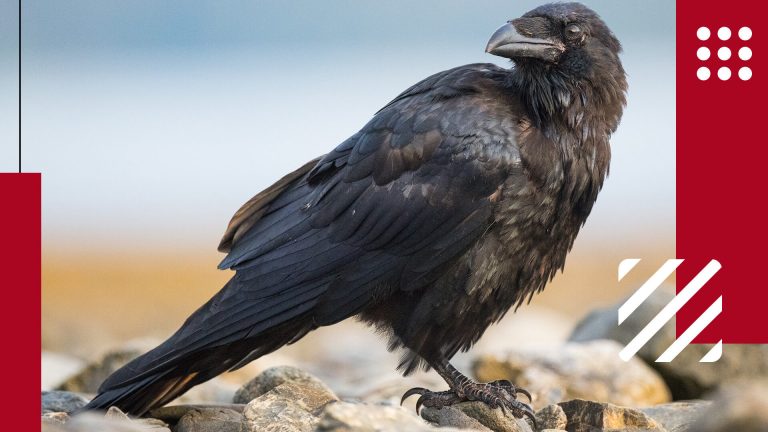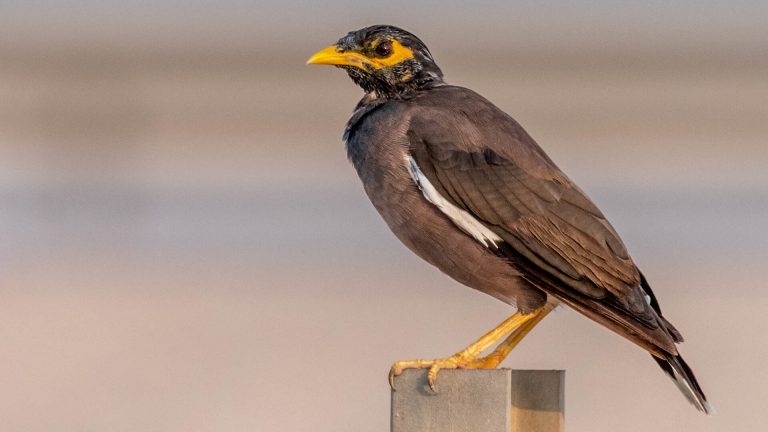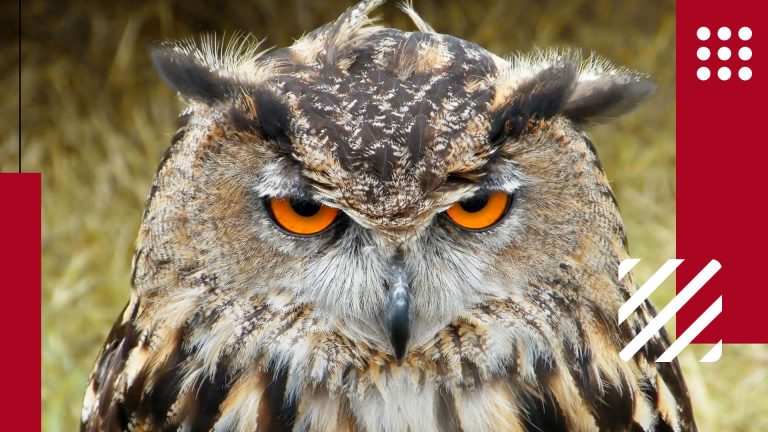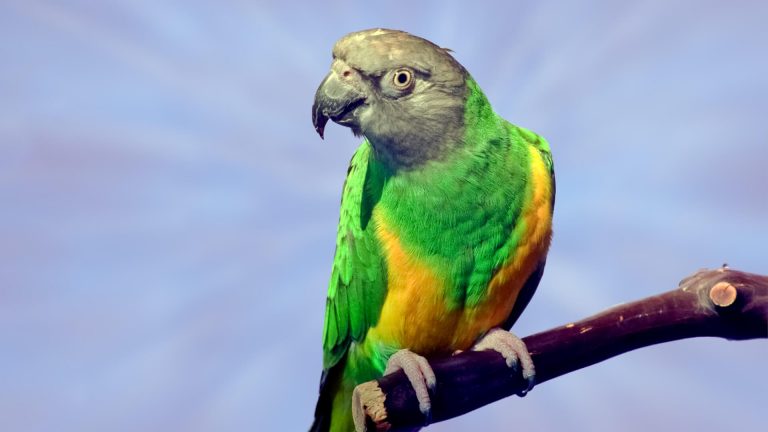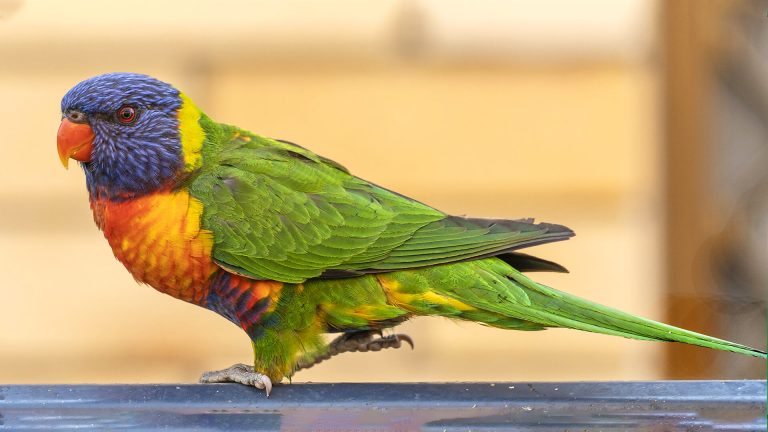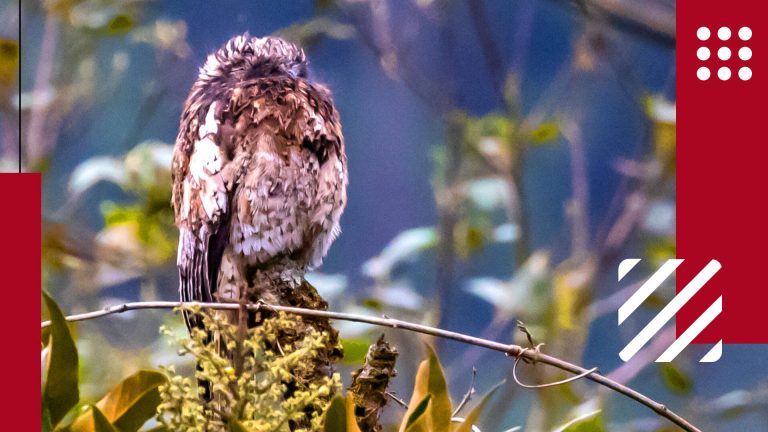The Moluccan Cockatoo, also known as the salmon-crested cockatoo, is native to the Moluccas, a group of islands in eastern Indonesia. The bird is known for its striking appearance, with a bright salmon-colored crest and a white body. It is a popular pet, but it can be difficult to care for due to its high intelligence and need for social interaction.
Distinctive Features of Moluccan Cockatoo
| Scientific Name | Cacatua moluccensis |
| Lifespan | Up to 70 years |
| Color | Mostly white with salmon-pink feathers on crest and wings |
| Size | Up to 20 inches |
| Weight | 850 grams |
| Health Risk | Moderate |
| Cage Size | Minimum 96" x 48" x 72" |
| Unique Trait | Large size and distinctive crest |
| Famous For | Beautiful plumage and playful nature |
| Temperament | Intelligent, affectionate, and demanding |
| Maintenance | High |
| Adaptability | Moderate |
| Behavior | Highly vocal, loves attention and interaction |
| Personality | Affectionate, social, and can be loud |
| Social | Highly social, bonds closely with their owners |
The Moluccan cockatoo is a large, white bird with a salmon-colored crest and pinkish-red underparts. It has a distinctive curved beak and can reach up to 20 inches in length. The bird is known for its high intelligence and ability to mimic human speech. It can live for up to 70 years with proper care.
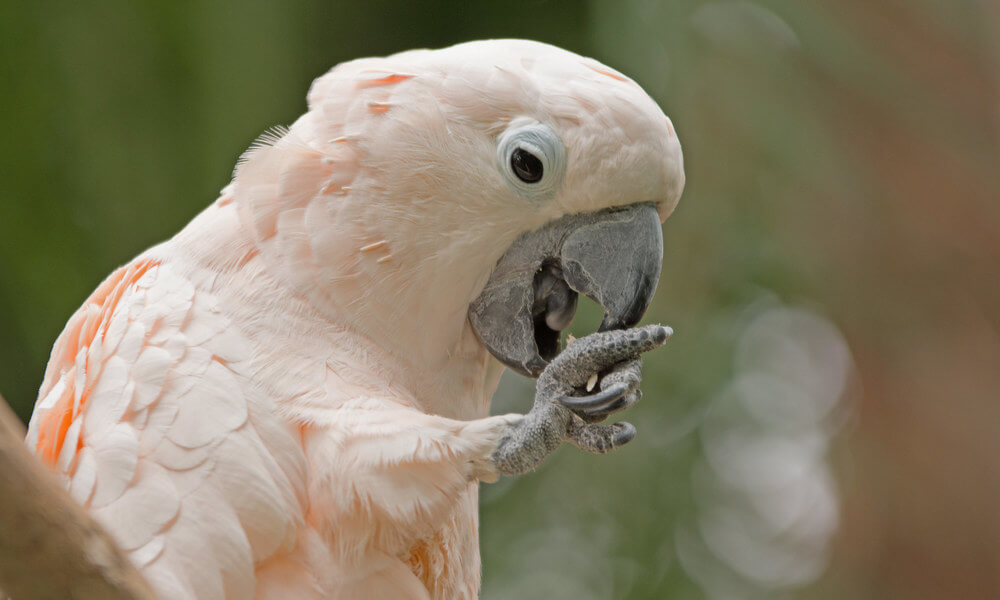
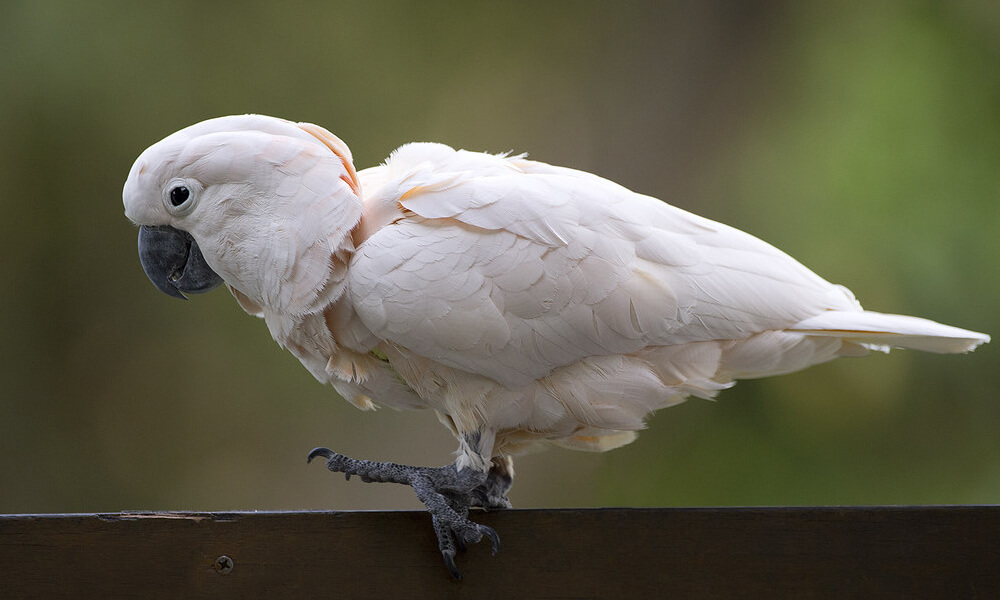
How to Take Care of Pet Moluccan Cockatoo?
Taking care of a pet Moluccan Cockatoo requires dedication, love, and understanding. These beautiful and intelligent birds need a lot of attention and social interaction to thrive. With their vibrant personalities and stunning appearance, they can bring immense joy and companionship to their owners.
How to Set Up Habitat for a Pet Moluccan Cockatoo?
Caring for a Moluccan Cockatoo requires a significant commitment, as these birds need plenty of space, social interaction, and mental stimulation to be happy and healthy. Here are some tips for setting up a suitable habitat for a Moluccan Cockatoo:
- Provide a large cage or aviary: Moluccan Cockatoos need plenty of space to stretch their wings and move around. The cage or aviary should be at least 8 feet long, 4 feet wide, and 6 feet tall to provide enough space for the bird to move comfortably.
- Include plenty of toys and perches: Moluccan Cockatoos are highly intelligent and need plenty of mental stimulation to stay happy. Provide a variety of toys, such as ropes, mirrors, and puzzle feeders, to keep the bird entertained. Also, include several perches of different sizes and textures for the bird to climb on and explore.
- Create a safe and stimulating environment: Moluccan Cockatoos need a safe and stimulating environment to thrive. Provide plenty of natural light and fresh air, and keep the bird's living space clean and free from drafts. Also, consider setting up a bird-proof play area where the bird can explore and interact with its surroundings.
What to Feed Your Pet Moluccan Cockatoo?
Moluccan Cockatoos need a balanced diet to stay healthy. Offer a variety of fresh fruits and vegetables, such as apples, berries, leafy greens, and carrots, as well as a high-quality pellet or seed mix specifically formulated for cockatoos. Provide fresh, clean water at all times. In general, a Moluccan Cockatoo's diet should consist of about 70% pellets or seed mix, 20% fresh fruits and vegetables, and 10% treats. Consult with a veterinarian or avian nutritionist for specific dietary recommendations for your bird.
What to Avoid Feeding Moluccan Cockatoo?
Avoid offering certain foods to Moluccan Cockatoos, as they can be harmful or even toxic to the bird. Some foods to avoid include:
- Chocolate: Chocolate contains theobromine, which is toxic to birds. Ingestion can cause vomiting, diarrhea, tremors, and even death.
- Avocado: Avocados contain persin, which can cause vomiting and diarrhea in birds. In severe cases, it can lead to heart failure and death.
- Caffeinated beverages: Caffeine is a stimulant that can be harmful to birds. Ingestion can cause rapid breathing, increased heart rate, and even death.
- Alcohol: Alcohol can be toxic to birds and can cause vomiting, diarrhea, lack of coordination, and even death.
- Raw beans and potatoes: Raw beans and potatoes contain toxins that can cause stomach upset and other health problems in birds. Always cook these foods thoroughly before offering them to your Moluccan Cockatoo.
In general, it's best to avoid offering any processed or heavily seasoned foods to your Moluccan Cockatoo.
Grooming & Hygiene Needs of Pet Moluccan Cockatoo
Proper grooming and hygiene are crucial for the health and well-being of a pet Moluccan Cockatoo. Here are some important aspects to consider:
- Feather Care: Moluccan Cockatoos have beautiful and voluminous feathers that require regular attention. They naturally produce powder down, which helps keep their feathers clean and in good condition. However, this powder can accumulate and cause feather dust. Regular baths or misting with water can help remove excess powder and keep their feathers clean and healthy. Additionally, providing them with opportunities to bathe in shallow water or providing a misting spray can be enjoyable for them.
- Nail and Beak Trimming: Moluccan Cockatoos' nails and beaks grow continuously, and they may need regular trimming to prevent overgrowth. Trimming should be done carefully using proper tools or by a professional avian veterinarian to avoid any injuries. Regular check-ups and consultations with an avian veterinarian can help ensure their nails and beaks are kept at an appropriate length.
- Skin and Feather Health: Monitor the skin and feathers of your Moluccan Cockatoo for any signs of irritation, dryness, or abnormalities. If you notice any issues, consulting with an avian veterinarian is recommended. A balanced diet with proper nutrients, including vitamin A, can contribute to healthy skin and feathers.
- Cleaning the Environment: Maintaining a clean living environment is essential for the overall health and hygiene of your pet Moluccan Cockatoo. Regularly clean their enclosure, perches, toys, and food/water dishes to prevent the buildup of bacteria or mold. Providing fresh water daily and replacing it when needed is crucial for their hydration.
Schedule regular visits to an avian veterinarian for thorough examinations and preventive care. They can help ensure your Moluccan Cockatoo is in good health, address any concerns, and provide guidance on grooming and hygiene practices specific to your bird's needs.
Health Concerns of Moluccan Cockatoo
Moluccan Cockatoos require proper care and attention to maintain their health and well-being. Here are some common health concerns associated with Moluccan Cockatoos:
- Feather Plucking and Self-Mutilation: Moluccan Cockatoos are prone to feather plucking, which is a behavior where they excessively groom and chew on their feathers, leading to feather loss and potential skin damage. This behavior can be triggered by stress, boredom, or underlying health issues. Providing mental stimulation, a balanced diet, and a stimulating environment can help prevent or reduce feather plucking.
- Nutritional Deficiencies: A poor diet can lead to nutritional deficiencies in Moluccan Cockatoos. Lack of essential nutrients, particularly vitamin A, calcium, and vitamin D3, can result in health problems such as a weakened immune system, metabolic bone disease, and poor feather condition. Providing a well-balanced diet is crucial for their overall health.
- Respiratory Infections: Moluccan Cockatoos are susceptible to respiratory infections, including bacterial, viral, and fungal infections. These infections can be caused by exposure to drafts, cold temperatures, or poor air quality. Common symptoms include sneezing, coughing, nasal discharge, labored breathing, and reduced activity. Maintaining a clean and well-ventilated environment, avoiding exposure to smoke or strong fumes, and regular veterinary check-ups can help prevent and detect respiratory infections early.
- Psittacine Beak and Feather Disease (PBFD): PBFD is a viral disease that affects many parrot species, including Moluccan Cockatoos. It is highly contagious and can cause feather abnormalities, beak deformities, immune system suppression, and eventual death. Good hygiene practices, quarantine of new birds, and regular veterinary examinations are important for preventing and managing PBFD.
- Chlamydiosis (Psittacosis): Chlamydiosis is a bacterial infection that can affect Moluccan Cockatoos and other parrots. It is zoonotic, meaning it can be transmitted from birds to humans. Infected birds may exhibit symptoms such as respiratory issues, eye discharge, lethargy, and weight loss. Regular veterinary check-ups and practicing good hygiene, such as proper handwashing and cleaning of bird cages and accessories, are essential for preventing the spread of this disease.
- Obesity: Moluccan Cockatoos have a tendency to gain weight if their diet is not properly managed. Obesity can lead to various health problems, including cardiovascular issues, joint problems, and a shortened lifespan. Providing a balanced diet, limiting high-fat and sugary foods, and encouraging regular exercise can help prevent obesity in these birds.
Regular veterinary check-ups, maintaining a clean and stimulating environment, providing a balanced diet, and monitoring their behavior and overall well-being are essential for ensuring the health and happiness of Moluccan Cockatoos.
Other Pets to Keep or Avoid with Moluccan Cockatoo
Moluccan Cockatoos are social birds that need plenty of attention and interaction to thrive. As such, it's generally not a good idea to keep other pets with a Moluccan Cockatoo, as the bird may become jealous or aggressive. However, some people have successfully kept other pet birds, such as small parakeets or finches, with a Moluccan Cockatoo. If you decide to keep multiple birds together, introduce them slowly and carefully to ensure they get along.
Facts About Moluccan Cockatoos
- The Moluccan Cockatoo, also known as the salmon-crested cockatoo, is native to the Moluccas, a group of islands in eastern Indonesia.
- Moluccan Cockatoos are highly intelligent and can learn to mimic human speech.
- These birds are popular pets, but they can be challenging to care for due to their high intelligence and need for social interaction.
- In the wild, these birds are threatened by habitat loss and illegal trapping for the pet trade.
What It's Like to Keep Moluccan Cockatoo as a Pet?
Here's what it's like to keep a Moluccan Cockatoo as a pet:
Temperament: Moluccan Cockatoos are known for their affectionate and social nature. They are highly intelligent birds and crave social interaction with their human companions. They can form strong bonds with their owners and enjoy being included in family activities. They are known for their playful and mischievous personalities, which can provide endless entertainment.
Vocalization: Moluccan Cockatoos are highly vocal and have a loud, piercing call. They are capable of mimicking sounds and can learn to imitate human speech. While their vocalizations can be charming and endearing, they can also be quite demanding and may require training and guidance to manage their vocal tendencies.
Enrichment and Exercise: Moluccan Cockatoos are active birds that require mental stimulation and physical exercise. Providing a variety of toys, puzzles, and chewable items helps keep them engaged and prevents boredom. They enjoy climbing, swinging, and foraging activities. Regular interaction and supervised playtime outside of the cage are essential for their well-being.
Socialization and Training: Moluccan Cockatoos thrive on social interaction and require plenty of attention and mental stimulation. They enjoy being part of the family and may develop separation anxiety if left alone for extended periods. Positive reinforcement training can help channel their intelligence and teach them appropriate behaviors.
Frequently Asked Questions About Moluccan Cockatoo
How long do Moluccan Cockatoos live?
Moluccan Cockatoos can live for up to 70 years with proper care.
Are Moluccan Cockatoos good pets?
Moluccan Cockatoos can make good pets for people who are willing to commit the time and resources to provide for their needs. These birds are highly intelligent and need plenty of space, social interaction, and mental stimulation to thrive. However, they can be loud and messy, and they require regular training and attention to prevent behavior problems.
What do Moluccan Cockatoos eat?
Moluccan Cockatoos need a balanced diet to stay healthy. Offer a variety of fresh fruits and vegetables, as well as a high-quality pellet or seed mix specifically formulated for cockatoos. Avoid offering foods high in fat or sugar, as these can lead to health problems. Provide fresh, clean water at all times.
Can Moluccan Cockatoos talk?
Moluccan Cockatoos are highly intelligent and can learn to mimic human speech. With proper training and socialization, these birds can learn to say a few words and phrases.

